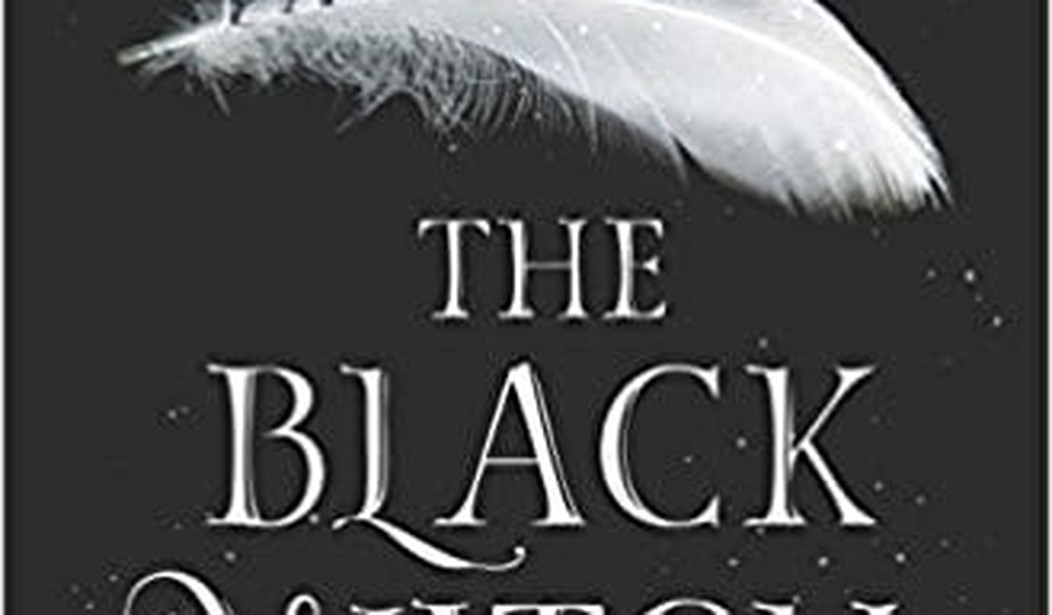A book called The Black Witch is making a name for itself, and not necessarily because of the writing. You see, the book uses prejudice as a theme within the book, where characters of the protagonist’s race are the top dogs and they look down on everyone who isn’t like them.
As such, it should be unsurprising that the protagonist espouses some pretty problematic views during her character arc, particular in the early parts of it.
Yet, for the social justice jihadis of our world, this kind of thing can never be included in a book, especially if it’s the protagonist saying it. They despise it so much that they’re trying to destroy the book. Via Vulture:
The Black Witch centers on a girl named Elloren who has been raised in a stratified society where other races (including selkies, fae, wolfmen, etc.) are considered inferior at best and enemies at worst. But when she goes off to college, she begins to question her beliefs, an ideological transformation she’s still working on when she joins with the rebellion in the last of the novel’s 600 pages. (It’s the first of a series; one hopes that Elloren will be more woke in book two.)
It was this premise that led Sinyard to slam The Black Witch as “racist, ableist, homophobic, and … written with no marginalized people in mind,” in a review that consisted largely of pull quotes featuring the book’s racist characters saying or doing racist things. Here’s a representative excerpt, an offending sentence juxtaposed with Sinyard’s commentary:
“pg. 163. The Kelts are not a pure race like us. They’re more accepting of intermarriage, and because of this, they’re hopelessly mixed.”
Yes, you just read that with your own two eyes. This is one of the times my jaw dropped in horror and I had to walk away from this book.
To be sure, that quote is certainly not a good thing.
But there’s something in fiction called “the character arc” — the change that the story creates within the character. Sinyard is looking at a character in a fairly early part of the book — page 163 of a 600-page book, so not even a third of the way through — and has judged the entire character arc. Does the character continue thinking that way? Does the character look at other races differently by the end? These are questions to be answered.
Yet the problem was that a protagonist espoused the views at all, which is forbidden. It’s fine for a villain to speak them, but the hero? That can only happen because the author endorses this kind of thought (rather than what the character thinks at the end of the book).
Sinyard’s review and a subsequent tweet were retweeted hundreds of times and created a situation where more and more vitriol was spun up for a book almost none of these people had bothered to read. Instead, they took Sinyard’s assessment as gospel.
“Mimi” (not her real name), a teen book blogger with a follower count in the thousands and who describes herself as “a huge fantasy reader,” was among those who had been looking forward to The Black Witch — and she was initially thrilled to see Sinyard, an influential voice in the community, pick up the book. “I was really excited for what she was going to say about it. I thought it was going to be 600 pages of epic-ness,” she says. But her excitement soured when she caught wind of the book’s issues; just reading the sentences collected in Sinyard’s review and Twitter threads was painful, she says: “It hit me really hard. I’m so upset about it. It was very hurtful, and very, like, just harmful and triggering.”
Yet there is a silver lining. It seems that many of those involved in such lynch mobs in the past are tiring of such shenanigans. One individual called out this poor example of social interactions, and this was from someone who had been to prison.
Even the report on Vulture created a backlash.
Dramatic as that sounds, it’s worth noting that my attempts to report this piece were met with intense pushback. Sinyard politely declined my request for an interview in what seemed like a routine exchange, but then announced on Twitter that our interaction had “scared” her, leading to backlash from community members who insisted that the as-yet-unwritten story would endanger her life. Rumors quickly spread that I had threatened or harassed Sinyard; several influential authors instructed their followers not to speak to me; and one librarian and member of the Newbery Award committee tweeted at Vulture nearly a dozen times accusing them of enabling “a washed-up YA author” engaged in “a personalized crusade” against the entire publishing community (disclosure: while freelance culture writing makes up the bulk of my work, I published a pair of young adult novels in 2012 and 2014.) With one exception, all my sources insisted on anonymity, citing fear of professional damage and abuse.
None of this comes as a surprise to the folks concerned by the current state of the discourse, who describe being harassed for dissenting from or even questioning the community’s dynamics. One prominent children’s-book agent told me, “None of us are willing to comment publicly for fear of being targeted and labeled racist or bigoted. But if children’s-book publishing is no longer allowed to feature an unlikable character, who grows as a person over the course of the story, then we’re going to have a pretty boring business.”
In other words, they’re worried that people will get both sides of the story and find out that the social justice zealots at work here are making a mountain out of something that doesn’t even qualify as a mole hill. In fact, I suspect they know it, and that’s why they did all they could to try and quash a dissenting opinion.
I’ve watched the left do this with books and Twitter for years. It’s a shame, but one upside is that whatever book they’re complaining about tends to be a pretty good read, so I guess I’ll snag a copy of The Black Witch and chill out this evening. I suspect what I’ll see when I finish the book will be very different from how it’s portrayed.
I’ll try and pretend I’m shocked.









Join the conversation as a VIP Member